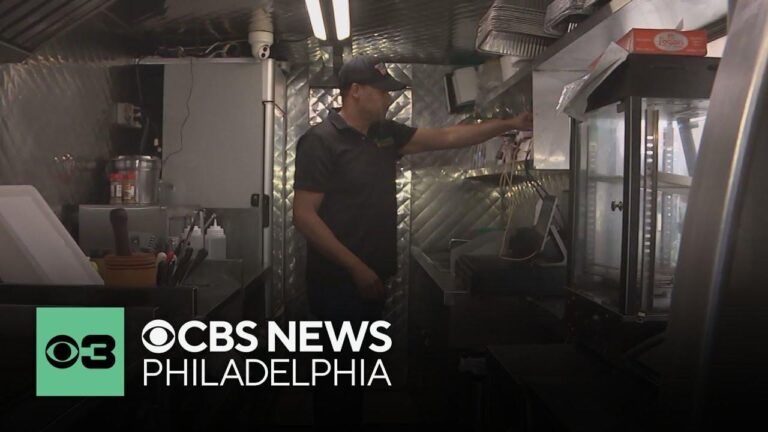Philadelphia’s Business Community Pushes Back Against Proposed Early Closing Curfew
Economic Concerns Mount as Philadelphia Businesses Face Potential Early Shutdowns
Entrepreneurs and small business advocates across Philadelphia are raising alarms over a newly introduced curfew bill that would require businesses to close earlier than their current hours. This legislation, intended to curb late-night disturbances, has ignited fears among business owners about substantial revenue declines, particularly for industries that thrive during evening hours such as dining establishments, nightlife spots, and entertainment centers. Many warn that Philadelphia’s fragile economic rebound from the pandemic could be jeopardized by these restrictions, potentially reversing months of progress.
Key issues raised by business stakeholders include:
- Decreased customer visits during peak evening periods
- Heightened financial pressure on small and medium-sized enterprises
- Risk of workforce reductions due to shortened operating hours
- Damage to Philadelphia’s image as a lively and attractive nightlife hub
| Sector | Projected Revenue Decline | Estimated Job Reductions |
|---|---|---|
| Restaurants & Bars | 20-30% | 15-25% |
| Retail Outlets | 10-15% | 5-10% |
| Entertainment Facilities | 25-40% | 20-30% |
Threats to Philadelphia’s Evening Economy: The Curfew’s Ripple Effects
Business owners emphasize that the evening hours are critical revenue generators, especially for restaurants, bars, and entertainment venues. The proposed curfew could severely disrupt these income streams, forcing many establishments to consider layoffs or even permanent closures. Given that many local businesses are still recovering from the economic downturn caused by COVID-19, this bill is seen as an additional obstacle rather than a solution.
Experts and community advocates warn that the curfew might unintentionally push nightlife activities into unregulated or underground settings, potentially increasing safety risks rather than mitigating them. The following data underscores the importance of nighttime operations to Philadelphia’s economy:
| Industry | Percentage of Revenue from Evening Hours | Night Shift Employment |
|---|---|---|
| Restaurants | 45% | 30 employees |
| Bars & Nightclubs | 60% | 25 employees |
| Retail Stores | 20% | 10 employees |
| Entertainment Venues | 55% | 15 employees |
Opponents of the curfew advocate for alternative safety strategies, such as bolstered security patrols and improved street lighting, which aim to enhance public safety without undermining business operations. The ongoing debate highlights the challenge of balancing community well-being with economic sustainability.
Proposed Alternatives: Community Leaders Call for Balanced Safety Initiatives
Philadelphia’s business and community leaders are urging policymakers to explore less restrictive measures that protect public safety while supporting economic recovery. Instead of enforcing early closures, they recommend targeted interventions including enhanced security protocols, venue-specific capacity controls, and expanded outdoor dining and entertainment options to maintain vibrancy and safety.
Suggested approaches include:
- Increased investment in crime prevention within nightlife districts
- Voluntary safety certification programs for businesses to encourage best practices
- Public education campaigns promoting responsible social conduct
- Flexible operating hours combined with strict sanitation and health guidelines
| Safety Strategy | Expected Outcome |
|---|---|
| Enhanced Security Measures | Lower incident rates without reducing business hours |
| Capacity Management | Ensures social distancing while maintaining customer flow |
| Certification Programs | Builds consumer confidence and encourages compliance |
| Community Awareness | Promotes shared responsibility for safety |
Expert Insights: Collaborative Solutions to Harmonize Safety and Commerce
Policy specialists advocate for a cooperative framework involving business owners, law enforcement, and municipal authorities to devise nuanced solutions that safeguard public safety without crippling local commerce. Instead of rigid curfews, they recommend adaptive strategies such as community policing, enhanced lighting in commercial areas, and incentives for voluntary adherence to safety protocols.
Key expert recommendations include:
- Stakeholder Forums: Regular meetings among businesses, police, and city officials to tailor safety measures.
- Adaptive Operating Hours: Allowing businesses to modify hours based on real-time safety data and community input.
- Technology Deployment: Use of surveillance cameras and alert systems to deter crime while supporting business activity.
| Strategy | Advantages | Challenges |
|---|---|---|
| Community Policing | Builds trust and cooperation within neighborhoods | Requires sufficient resource allocation |
| Safety Technology | Enables prompt crime prevention | Raises privacy and surveillance concerns |
| Flexible Hours | Allows businesses to respond to safety conditions | Potential difficulties in consistent enforcement |
Final Thoughts: Navigating the Intersection of Safety and Economic Vitality in Philadelphia
As Philadelphia’s city council continues deliberations on the proposed curfew legislation, local business owners remain resolute in their opposition, underscoring the potential economic repercussions and operational challenges. The ongoing discourse reflects the complex task of balancing public safety priorities with the need to preserve the city’s dynamic nightlife and economic health. Stakeholders and observers alike await further developments as Philadelphia seeks a path forward that supports both community well-being and business resilience.


